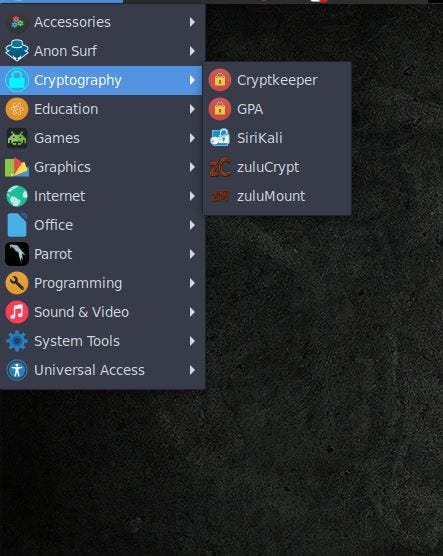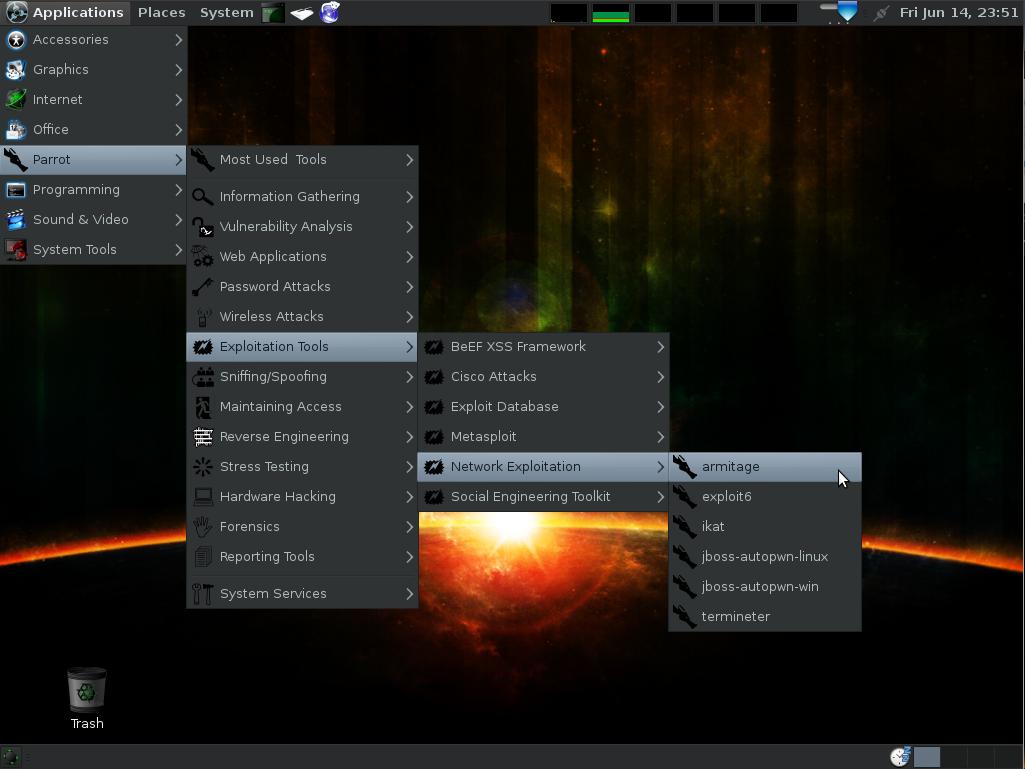

- PARROT SECURITY OS DEFAULT PASSWORD FULL
- PARROT SECURITY OS DEFAULT PASSWORD PORTABLE
- PARROT SECURITY OS DEFAULT PASSWORD ISO
- PARROT SECURITY OS DEFAULT PASSWORD DOWNLOAD
- PARROT SECURITY OS DEFAULT PASSWORD FREE
The live ISO offers a Curses-based installer, a graphical installer, and a speech synthesis-based installer. The Parrot Security installer is a modified Debian installer, which will make it familiar to most Kali Linux users. The various language options are self-explanatory but are great if English isn't your native language.These are nice to have in a live image because they allow you to try a few fixes to common issues if your machine doesn't boot up without having to look up the kernel parameters. Each one sets kernel parameters to deal with various common Linux boot problems. The "Failsafe" options are for convenience."Forensics" allows you to boot without mounting disks.The "Encrypted Persistence" option offers encrypted persistence, obviously.The standard "Persistence" option will enable you to retain changes to the OS on your USB drive."RAM mode" loads the operating system into RAM, which allows you to pull the USB stick from a host and continue to work in Parrot Security until the host reboots."Terminal mode" is another live boot option but without a GUI.
PARROT SECURITY OS DEFAULT PASSWORD PORTABLE
It's an excellent way to get a feel for the system and also gives you a portable penetration testing OS. Your machine will boot from the USB stick, and you can work with Parrot Security from there.

The Parrot Security ISO is very flexible. To start a new one, click on the "New" button in the top left of the window. I currently have an instance of Parrot Security running. Launch VirtualBox, and you will see the VirtualBox manager. You can view the process for using VirtualBox on macOS in our video above.
PARROT SECURITY OS DEFAULT PASSWORD FREE
I will be using VirtualBox in Windows, which is free from the VirtualBox website, though these steps should work on all major platforms. If something goes wrong, you can burn the VM and call it a day.

Not only that, but your machines are also disposable. Most modern computers are more than capable of running a Linux guest, making virtualization incredibly appealing. We could write the image to a thumb drive, then boot on a physical machine, but that's much more time-consuming than merely creating a VM (virtual machine). Step 2: Create a Virtual Machineīefore we can boot up the OS, we need a machine to try it out on. If the file name is different or a newer version, make sure to swap that out in the command you use above. If your hash matches up, you're good to move on to the next step, booting the OS. To verify the hash in Linux, open a terminal and use sha1sum. To verify the hash in macOS, open a terminal and execute shasum. certutil -hashfile Parrot-security-4.6_amd64 SHA1 To verify the hash in Windows, open a command prompt and execute certutil. The hashes for the current version of Parrot Security (4.6) are available from Parrot's site. If the hashes do not match up, you may have a modified copy or a corrupted ISO, neither of which you should use.
PARROT SECURITY OS DEFAULT PASSWORD DOWNLOAD
Once the download is complete, it's essential to verify the hash. You can find it on the Parrot Security site along with the hashes for the ISO. The first step is to grab a copy of the Parrot Security ISO. Parrot Security does work as a live ISO, but I generally like to try things out installed and persistent. I installed Parrot Security in a VirtualBox VM. With the background out of the way, let's take a look at Parrot Security. Parrot Security OS running in VirtualBox. Working with the operating system itself will feel familiar, and there is no need to re-learn package management or distribution specifics. Parrot Security OS is a solid general use desktop workstation with plenty of security tools included to keep us happily hacking away!įans of Kali Linux will appreciate that Parrot is Debian-derived. Parrot OS has quite a few targeted use-cases, but that doesn't detract from the main distribution.
PARROT SECURITY OS DEFAULT PASSWORD FULL
Parrot Cloud targets server applications, giving the user access to the full suite of penetration testing tools included in Parrot Security, minus the graphical front end.Parrot Studio is designed with multimedia creation in mind.



 0 kommentar(er)
0 kommentar(er)
